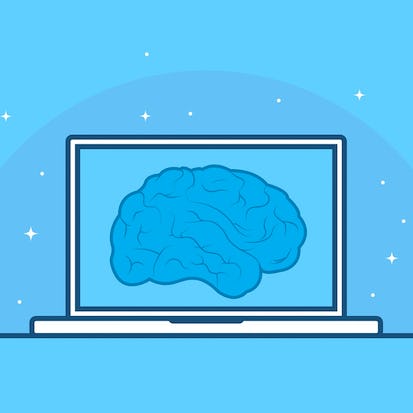- Level Professional
- المدة 2 ساعات hours
- الطبع بواسطة Coursera
-
Offered by

عن
In this 2 hours long project-based course, you will learn to build a Logistic regression model using Scikit-learn to classify breast cancer as either Malignant or Benign. We will use the Breast Cancer Wisconsin (Diagnostic) Data Set from Kaggle. Our goal is to use a simple logistic regression classifier for cancer classification. We will be carrying out the entire project on the Google Colab environment. You will need a free Gmail account to complete this project. Please be aware of the fact that the dataset and the model in this project, can not be used in real-life. We are only using this data for educational purposes. By the end of this project, you will be able to build the logistic regression classifier to classify between cancerous and noncancerous patients. You will also be able to set up and work with the Google colab environment. Additionally, you will also be able to clean and prepare data for analysis. You should be familiar with the Python Programming language and you should have a theoretical understanding of the Logistic Regression algorithm. You will need a free Gmail account to complete this project. Note: This course works best for learners who are based in the North America region. We’re currently working on providing the same experience in other regions.الوحدات
Practical Application via Rhyme
1
Assignment
- Graded Quiz: Test your Project understanding draft
1
Labs
- Breast Cancer Prediction Using Machine Learning
1
Readings
- Project-based Course Overview
Auto Summary
Dive into the world of Data Science and AI with the "Breast Cancer Prediction Using Machine Learning" course, offered by Coursera. This project-based course is an engaging 2-hour journey where you will learn to build a logistic regression model using Scikit-learn, aimed at classifying breast cancer as either malignant or benign. The course utilizes the Breast Cancer Wisconsin (Diagnostic) Data Set from Kaggle, ensuring a practical, hands-on learning experience. Throughout the course, you will work within the Google Colab environment, making it accessible with just a free Gmail account. By the end of the project, you will have gained the skills to construct and implement a logistic regression classifier, prepare and clean data for analysis, and navigate the Google Colab setup. Designed for those with a background in Python programming and a theoretical understanding of logistic regression, this intermediate-level course is perfect for aspiring data scientists and AI enthusiasts looking to enhance their machine learning capabilities. Although tailored for learners in North America, efforts are underway to extend the same enriching experience to other regions. With free subscription access, this course is an excellent opportunity to advance your skills in a focused, practical setting. Join now and take the next step in your data science journey!

Priya Jha


